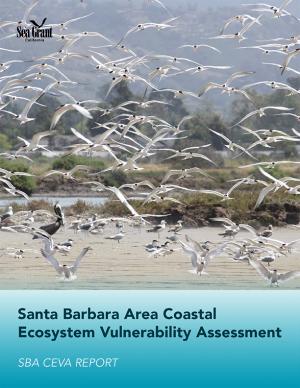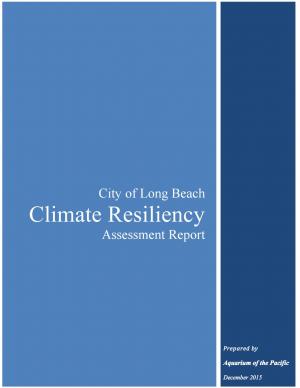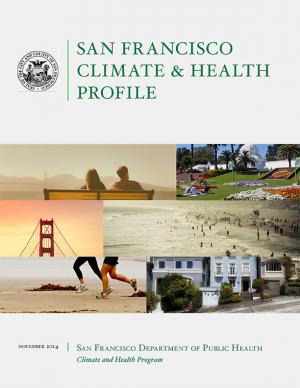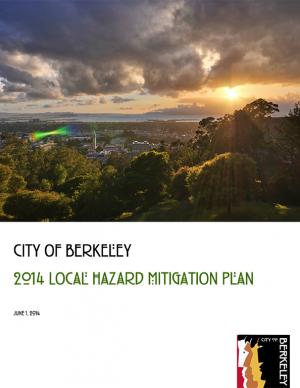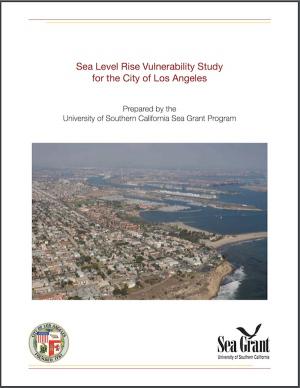Access a range of climate-related reports issued by government agencies and scientific organizations. Browse the reports listed below, or filter by scope, content, or focus in the boxes above. To expand your results, click the Clear Filters link.
This assessment was a multidisciplinary research project that investigated future changes to southern Santa Barbara County climate, beaches, watersheds, wetland habitats, and beach ecosystems. The target audience is local land use planners and decision makers, and the main objective is to provide information that assists the cities of Santa Barbara, Carpinteria, and Goleta, the County of Santa Barbara, and UC Santa Barbara in climate adaptation planning with a clear focus on coastal ecosystems.
In January 2015, Long Beach Mayor Robert Garcia asked the Aquarium of the Pacific to take a lead in assessing the primary threats that climate change poses to Long Beach, to identify the most vulnerable neighborhoods and segments of the population, and to identify and provide a preliminary assessment of options to reduce those vulnerabilities. Over the course of 2015, the Aquarium hosted and participated in meetings and workshops with academic and government scientists, business and government leaders, local stakeholders, and Long Beach residents to discuss key issues facing our community as the result of climate change. This report, completed in December 2015, represents the culmination of these efforts. The report offers detailed assessments of the five main threats of climate change to Long Beach: drought, extreme heat, sea level rise and coastal flooding, deteriorating air quality, and public health and social vulnerability. It also provides an overview of what is currently being done to mitigate and adapt to these threats, and other options to consider. Finally, this report presents a series of steps and actions that city leaders and community stakeholders can use as a template for making Long Beach a model of a climate resilient city.
This report links climate change projections with their associated health outcomes, and identifies populations and locations most vulnerable to these health outcomes in San Francisco. The goal of the Climate and Health Profile is to support local public health climate adaptation efforts, and advance urban health and environmental justice in the climate and health field.
This plan—an update to the 2009 California Climate Adaptation Strategy—augments previously identified strategies in light of advances in climate science and risk management options.
This plan evaluates the risks that different hazards pose to Berkeley and engages the community in dialogue to identify the most important steps that the city and its partners should pursue to reduce these risks. The plan updates the city's plan initially adopted in 2004. To develop the 2004 Disaster Mitigation Plan, the city conducted detailed research on four major natural and two major “man-made” hazards present in Berkeley: earthquake, wildland-urban interface fire, landslide, flood, hazardous materials release, and terrorism. Since that time, new maps and data depicting the extent and possible impacts from tsunami and climate change have become available. In 2011, the city added these hazards to the list and they are incorporated into this plan..
In anticipation of rising sea levels, a team worked to to gauge the impact of rising tides on local communities and infrastructure. This report describes the process and outcomes of efforts to protect at-risk assets through proactive planning and early identification of adaptation measures.
The Sacramento-San Joaquin River Delta is the grand confluence of California’s waters, the place where the state’s largest rivers merge in a web of channels—and in a maze of controversy. In 2009, seeking an end to decades of conflict over water, the California Legislature established the Delta Stewardship Council with a mandate to resolve long-standing issues. The first step toward that resolution is the Delta Plan—a comprehensive management plan for California’s Sacramento-San Joaquin Delta, developed to guide state and local agencies to help achieve the co-equal goals of providing a more reliable water supply for California and protecting, restoring, and enhancing the delta's ecosystem.
A contribution to the 2013 National Climate Assessment, this report is a summary and synthesis of the past, present, and projected future of the Southwest region’s climate. It emphasizes new information and understandings since publication of the previous national assessment in 2009.

